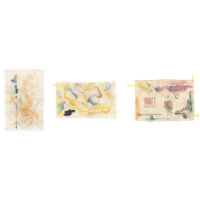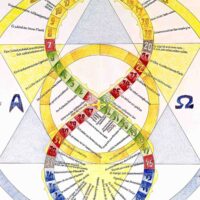In the search for the law of cause and effect in an exclusively external world, modern science has had incomparable success. No god, no spirit has been able to resist it. Mechanical laws are enough to explain everything. The technical achievements resulting from this new worldview have seemed like proof of its universal validity.
To believe, however, that the world consists solely and exclusively of cold, blind, and dumb mechanisms is a bold step. Nevertheless, this worldview has prevailed in Western modernity. Nietzsche was able to bring this edifice down in just a few sentences: “An essentially mechanical world would be an essentially senseless world! If one were to estimate the value of music according to how much of it could be counted, calculated, and put into formulas, how absurd such a ‘scientific’ estimation of music would be! What would one have grasped, understood, recognized of it? Nothing, absolutely nothing of what ‘music’ is actually about!” (The Gay Science, No. 373).
And what if the world were not mechanical, but musical? Then it could be neither cold nor blind nor silent; it could be that there is a deeper intention, an artist in it. It could be that one must prick one’s ears up in order for the secret harmony of the world to begin revealing itself. Existence. The dance of the universe. One would have to learn to listen to this music.
Everyone knows that music lives in silence. To learn to create silence within oneself, to create the most immaculate silence, is an invisible but difficult exercise. To learn to listen to silence is to begin to perceive world-music.
Translation Eliza Rozeboom
Image Katharina Müller; pencil, chalk, ink, watercolour on tea bags as „conversation protocols“.










Thank you! So simply said, so profound.
J.R.R. Tolkien in the Silmarillion, Olaf Stapledon in Star Maker showed how the world was created by the Gods making music or directed by stars consciously dancing. Books to cite.